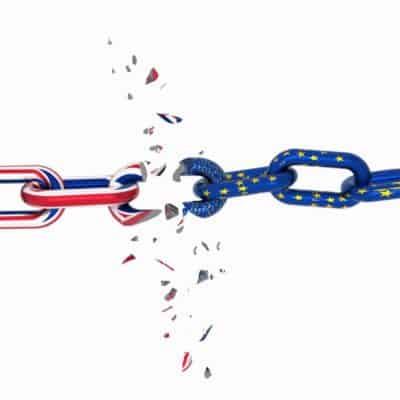An event called the World’s Colombian Exposition opened in Chicago on May 1, 1893. It had taken many years of planning and an act of Congress to select the location for what is commonly called the “World’s Fair.” Nearly 50 nations maintained pavilions during the six-month long exhibition and over 27 million people attended.
It was a truly influential event. The recently composed Pledge of Allegiance was first recited there by children en masse. The fair spawned the first American commemorative stamp set. Well known edibles debuted or were popularized there like brownies, cream of wheat, Juicy Fruit gum, peanut butter and Pabst Blue Ribbon beer.
Manufacturing marvels were also on display such as a moving sidewalk, an electric kitchen complete with dishwasher, a prototype of the zipper, the machine that presses a penny into a souvenir and aerosol spray. The first Ferris Wheel was also constructed by Mr. Ferris himself. It sought to replicate the success of the main attraction at the Paris fair a few years prior, the Eiffel Tower. Many referred to it as a “Chicago Wheel.”
It was altogether another world. Our nation was showcasing its growing strength and prowess. Lavish, ornamental buildings were constructed to receive the millions who flocked by horse and buggy to bask under electric light and see life changing devices we now take for granted. It offers many other insights into our culture at the time as well.
One is found in the controversy surrounding whether or not the fair would be open on Sunday. Initially it was to be closed that day, as much of the population considered it to be the “Sabbath” and observed it as such. Laws restricting business and other activities on Sunday still exist but were far more prevalent in 1893. The Sunday closure had been decreed during the planning of the event by Congress.
This sparked a lively debate. Many argued closing on Sunday would make it impossible for working class people to attend. Others, like the Seventh-Day Adventists, contended Congress had no right to enforce a religious observance and that doing so was contrary to our founding principles and a step towards tyranny. The Adventists vigorously laid out their view in a publication titled Appeal and Remonstrance that included many examples and supporting quotes from our country’s founders. It was ultimately decided the fair would remain open on Sunday.
The backlash turned out to be just as fierce. Pulpits reverberated in condemnation of the perceived desecration. Petitions sought to garner popular support against the change. Some groups even boycotted the event entirely. This outpouring of Protestant fervor in defense of Sunday created a unique opportunity for yet another group, the Catholic Church.
At this time Cardinal James Gibbons was the Archbishop of Baltimore, Maryland. He was considered the most prominent and influential Catholic in America. He was also thought to be utterly in-step with the Papacy. He had attended the First Vatican Council and voted to establish the doctrine of Papal infallibility. He was also a member of the College of Cardinals.
His official newspaper, The Catholic Mirror, was published in Baltimore. They had been sent a copy of Appeal and Remonstrance and used it, as well as the surrounding controversy, to issue a challenge to the Protestant world. The series of articles they produced was reprinted in a volume titled Rome’s Challenge. The arguments advanced are as illuminating and compelling today as they were in 1893.
It begins by asserting the common creed among Protestants, that of basing their beliefs on scripture alone. It asks, “What Protestant pulpit does not ring almost every Sunday with loud and impassioned invectives against Sabbath violation?” It sets up the majority belief, Sunday observance, against that of the minority who observe Saturday. But it is impossible for both views to be the true interpretation of scripture. How the Catholic Mirror proceeds to dispense with this problem may surprise you.
“The Protestant world has been, from its infancy, in the sixteenth century, in thorough accord with the Catholic Church, in keeping ‘holy’ not Saturday but Sunday.” Most Protestants would not argue with that. However, if claiming to rely only on God’s word, the Mirror says, “…they have been teaching and practising what is Scripturally false for over three centuries…” (Rome’s Challenge, Page 5) Shocked yet?
The series then sets out to answer three questions. 1. Which day does the Bible say to keep Holy? 2. Has the New Testament modified the original command? 3. Have Protestants been obeying the Bible? And if not, why? The next article dives into the first question.
Scriptures cited include Genesis 2:2, the establishment of the Sabbath day at creation. Exodus 20 is also used, the giving of the Ten Commandments. It cites Exodus 31:15-16 which talks about the Sabbath as a perpetual sign and an everlasting covenant. They write:
“In the Old Testament, reference is made one hundred and twenty-six times to the Sabbath, and all these texts conspire harmoniously in voicing the will of God commanding the seventh day to be kept, because God Himself first kept it, making it obligatory on all as ‘a perpetual covenant.’ Nor can we imagine anyone foolhardy enough to question the identity of Saturday with the Sabbath or seventh day, seeing that the people of Israel have been keeping the Saturday from the giving of the law…” (Page 8)
After emphasizing how serious Sabbath-breaking was considered, the article moves on to the second question: has the command been modified? Quote, “Examining the New Testament from cover to cover, critically, we find the Sabbath referred to sixty-one times. We find, too, that the Saviour invariably selected the Sabbath (Saturday) to teach in the synagogues and work miracles. The four Gospels refer to the Sabbath (Saturday) fifty-one times.
“In one instance the Redeemer refers to Himself as ‘the Lord of the Sabbath,’ as mentioned by Matthew and Luke, but during the whole record of His life, whilst invariably keeping and utilizing the day (Saturday), He never once hinted at a desire to change it.
“His apostles and personal friends afford us a striking instance of their scrupulous observance of it after His death, and, whilst His body was yet in the tomb, Luke (23:56) informs us: ‘And they returned and prepared spices and ointments, and rested on the Sabbath day according to the commandment.’” (Page 10)
The Gospels providing no change, the reader is encouraged to search further, on into the book of Acts for evidence. The Mirror asserts Saturday is invariably the Sabbath mentioned, offering for scripture, “Acts 13:14, 27, 42, 44. Once more, Acts 15:21; again Acts 16:13; 17:2; 18:4. ‘And he [Paul] reasoned in the synagogue every Sabbath, and persuaded the Jews and the Greeks.’ Thus the Sabbath (Saturday) from Genesis to Revelation!!! Thus, it is impossible to find in the New Testament the slightest interference by the Savior or His apostles with the original Sabbath…” (Page 11)
Mentions of the first day of the week are then dealt with. Few would advance that any of them represent a change in custom or doctrine and are dismissed summarily. Paul taking up a collection on the first day of the week in 1 Corinthians 16:1-2 is treated at greater length. However, “the request of St. Paul to make the collection on Sunday remains to be classified with the work of embalming Christ’s body, which could not be effected on the Sabbath, and was consequently deferred to the next convenient day; viz., Sunday, or the first day of the week.” (Page 17)
The next article addressed uses of the phrase “the Lord’s day” or “the day of the Lord,” references to the Sabbath and the first day of the week “having been found not to afford the slightest clue to a change of will on the part of God…” (Page 18) For scriptures they advanced Acts 2:20, 1 Corinthians 1:8, 1 Corinthians 5:5, 2 Corinthians 1:13-14, Philippians 1:10, 2 Peter 3:10, 2 Peter 3:12. All clearly refer to the day of judgment, not just another Sunday.
The last instance remaining is from Revelation 1:10, “I was in the spirit on the Lord’s day…” It is noted that in the Gospel of John, Sunday had been referred to as “the first day of the week” twice, in John 20:1 and 20:19. (Page 19) Added to that, the context provided by the rest of the book of Revelation is undeniable. Nor is it reasonable that inspired texts would differ so drastically in the meaning ascribed to a phrase, “the expression ‘the Lord’s day’ being confined in scripture to the day of Judgement exclusively.” (Page 20)
The Mirror concludes, “The Bible and the Sabbath constitute the watchword of Protestantism; but we have demonstrated that it is the Bible against their Sabbath. We have shown that no greater contradiction ever existed than their theory and practice.” (Page 23) It closes with even stronger words, “Their pretense for leaving the bosom of the Catholic Church was for apostasy from the truth as taught in the written word.
“They adopted the written word as their sole teacher, which they had no sooner done than they abandoned it promptly, as these articles have abundantly proved; and by a perversity as willful as erroneous, they accept the teaching of the Catholic Church in direct opposition to the plain, unvaried, and constant teaching of their sole teacher in the most essential doctrine of their religion, thereby emphasizing the situation in what may be aptly designated ‘a mockery, a delusion, and a snare.’” (Page 25)
It may seem odd to us that any church could take such pains to prove scripture says one thing and boldly continue doing the opposite. But Catholics DO NOT believe that scripture is binding. Catholicism formally rejected that notion at the very beginning of the reformation. The Council of Trent in 1546 held that scripture and tradition were equal. Though there were Catholics who supported the stance of “scripture only,” arguments about the Sabbath were advanced and the part for “tradition” prevailed! To accept “scripture only” would have overthrown Sunday observance!
We would do well to remember Rome’s Challenge. The articles published by The Catholic Mirror were a brazen attack on the Protestant world, yet they expose a serious weakness still extant in most Christian denominations. It is a haughty mockery, but what argument or excuse can be advanced against it? Do most churches follow the Bible or tradition? On what foundation do you build your faith?










